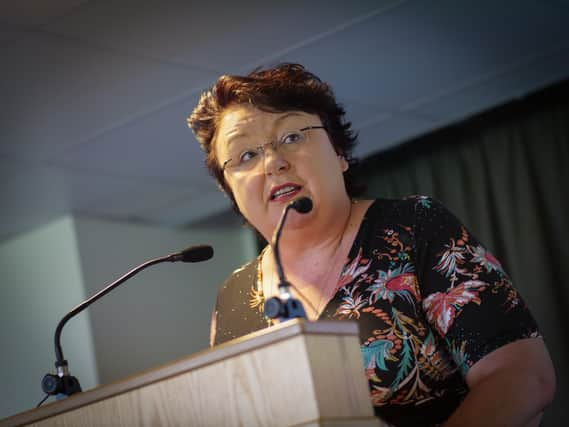English town halls are "infantilised poor cousins" compared with Welsh and Scottish counterparts, says Yorkshire council chief


Doncaster council’s Jo Miller, who is president of the Society of Local Authority Chief Executives & Senior Managers (SOLACE), said the disparity between funds available in different parts of the country strengthens the case for “genuine devolution”.
Analysis in the Local Government Chronicle (LGC) shows councils in Scotland and Wales now have access to more funding for core services, including schools but excluding police and fire, than they did at the start of the decade whereas comparable funding levels for English councils have been cut by a 26 per cent over the same period.
Advertisement
Hide AdAdvertisement
Hide AdIn 2018-19 English councils are receiving, on average, £1,423 to spend on services per person, says LGC. This is more than a third lower than what their counterparts in Wales and Scotland are given to spend per person, at £2,309 and £2,237 respectively.
Powers over a host of areas including education, health and local government were passed from central government to the devolved administrations in Wales and Scotland after referendums in 1997.
In Scotland a host of other powers were transferred to the Holyrood government, which has been led by the Scottish National Party since 2007, including control over varying the frequency of Universal Credit payments.
Advertisement
Hide AdAdvertisement
Hide AdSince 2011 the Labour-run Welsh assembly has had primary law-making powers over devolved areas and in 2014 it gained tax-raising powers including stamp duty and landfill tax.
Mrs Miller said: “English councils are the infantilised poor cousins within the UK local government family. What does that mean for the future strength and cohesiveness of the Union?
“Moreover, if devolution in Scotland and Wales has afforded local public services a measure of protection not enjoyed here, do we need to use that as the basis for renewed calls for a parity of devolution within England? Those may be questions that we are forced to confront sooner rather than later.”
Advertisement
Hide AdAdvertisement
Hide AdDoncaster is one of the Yorkshire authorities that has seen significant cuts to its core funding since 2010.
Earlier this week, Doncaster mayor Ros Jones said the authority is ‘outperforming’ many other local authorities on finances but said more cuts are on the way.
Documents presented to a meeting of the council’s cabinet showed £4 million was taken away from the capital build budget to help plug the well-documented black hole in children’s services.
Leaders in Doncaster are among those calling for vital powers and resources to be transferre d to a region-wide authority as part of a One Yorkshire devolution deal.
Advertisement
Hide AdAdvertisement
Hide AdIn his Budget speech last month, Chancellor Philip Hammond said English local government had “made a significant contribution to repairing the public finances”.
He pointed to £1bn extra funding for social care, and the removal of the housing borrowing cap, as proof the government was giving councils “more resources to deliver high quality public services.”
A spokeswoman for the Ministry of Housing, Communities and Local Government said: “Councils have access to £90.7bn over the next two years to meet the needs of their residents.
“We announced over £1 billion of extra funding for local government to pay for social care and road repairs in the Budget, and this means authorities will see a real terms increase in their funding both this year and next.
“We are also giving councils the power to retain the growth in business rates income and are working with them to develop a funding system for the future based on the needs of different areas.”